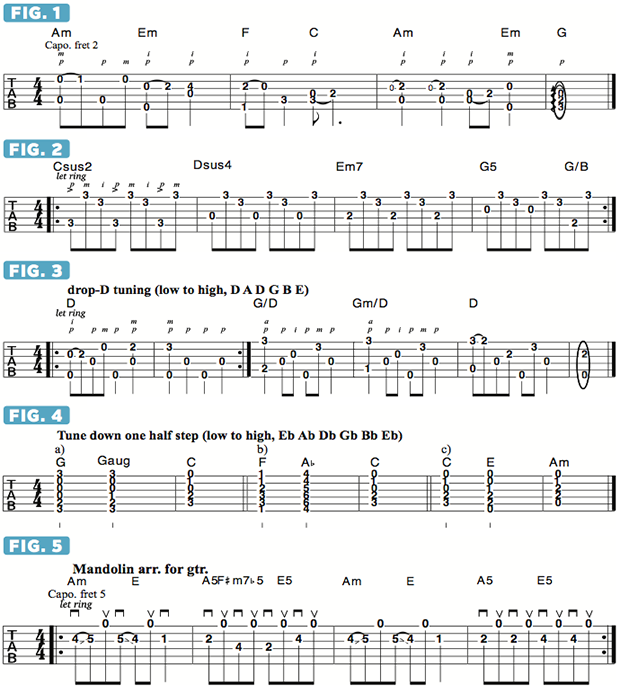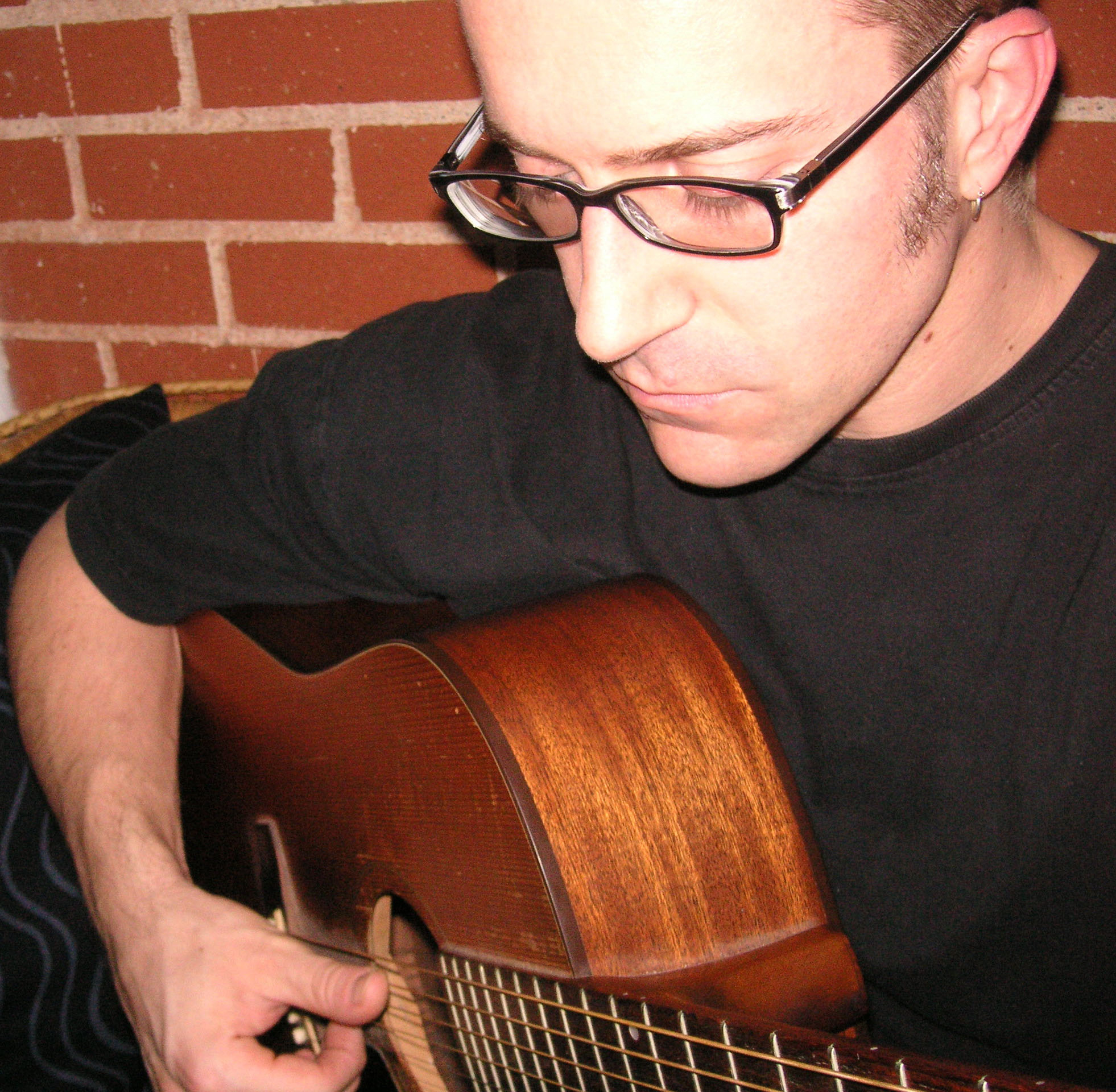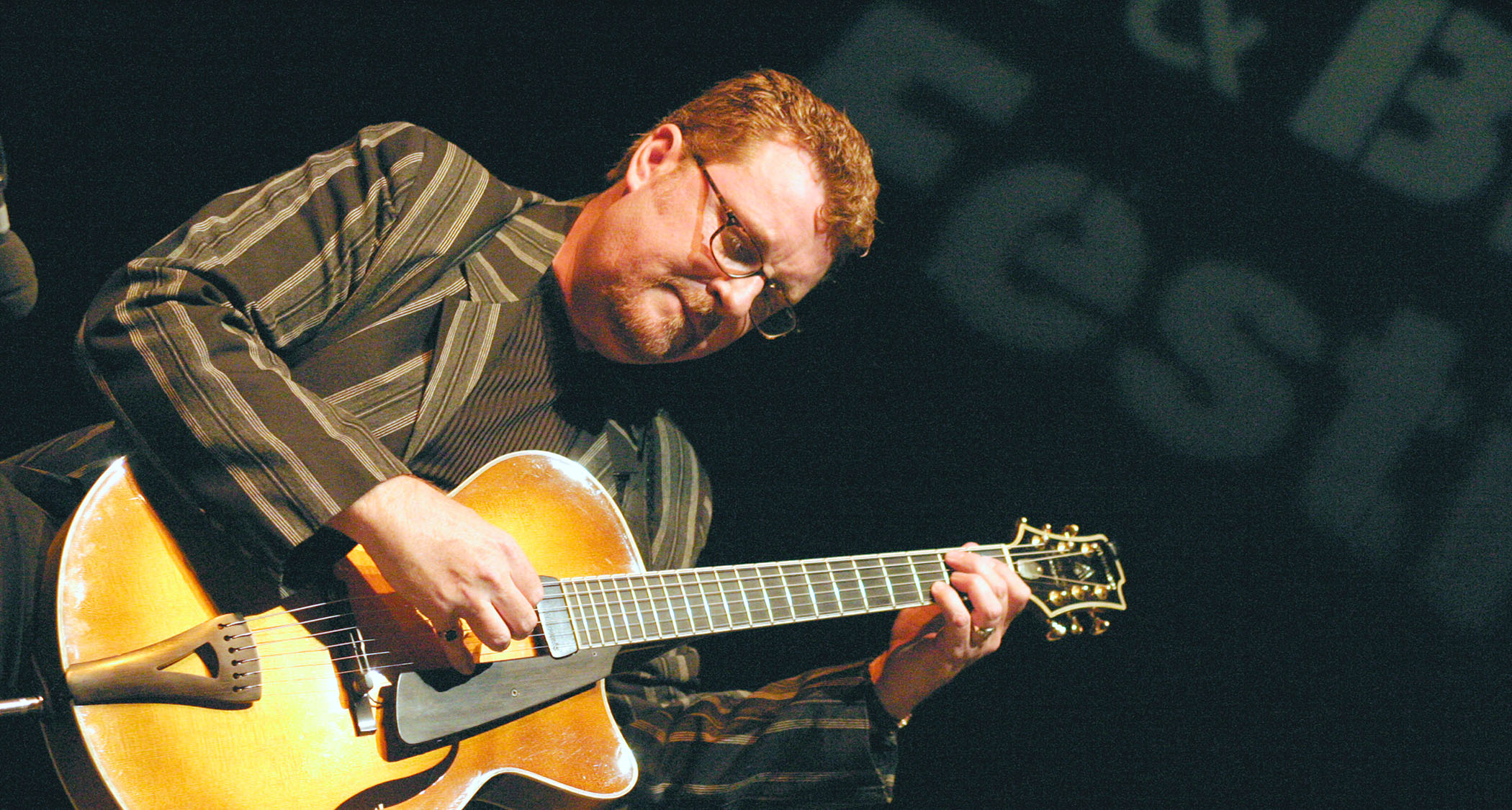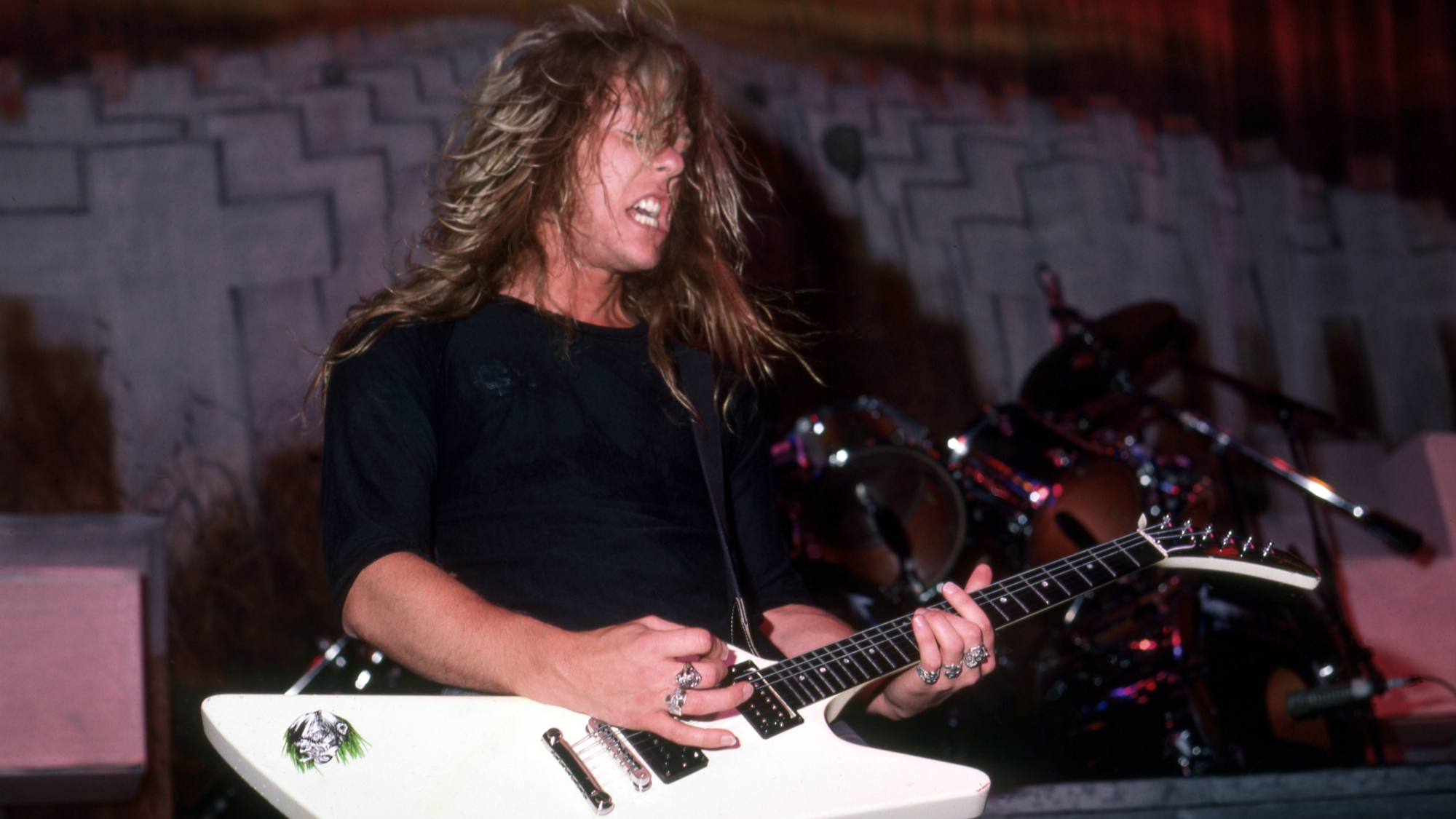The Sublime Acoustic Accompaniment Stylings of Chris Cornell
Take a look at Chris Cornell's innovative—and often overlooked—acoustic guitar work.

WIdely regarded as one of the greatest rock singers of all time, Chris Cornell fronted some of the most unique and successful bands of the modern era, namely Soundgarden and Audioslave.
Between (and in some cases, during) those projects, Cornell also penned pieces for film soundtracks (Singles, Great Expectations and Casino Royale, among others) and issued a trio of solo albums, resulting in an impressively diverse body of work.
After 2011, Cornell began taking much of this massive song catalog, including a few Temple of the Dog songs and some creative covers, and delivering it in two-and-a-half-hour solo acoustic (guitar/vocal) shows, as documented on his live Songbook album.
As much joy as this brought Cornell—to the point where “solo acoustic artist” became a cherished part of his musical identity—feelings of being trapped in the format began feeling more “nostalgic” than newly creative.
Enter Higher Truth, Cornell’s first ever all-acoustic studio record—a platter influenced by Nick Drake’s Pink Moon, Bruce Springsteen’s Nebraska and Daniel Johnston’s Songs of Pain, but ripe with modern production. So for this lesson, let's take a look at some of Higher Truth’s future classics! Cornell penned “Josephine” for his wife-to-be; as the proverbial ink dried, he sang it over the phone (while on tour) as a marriage proposal.
Played fingerstyle, capo-2, the song’s emotional intro features tasty hammer-ons and pull-offs in open position, similar to FIGURE 1. Note the use of thumb fretting on the low F notes in bar 2, which facilitates a pull-off to the open G string within the chord, a feat not possible if using a conventional F barre chord fingering. “Murderer of Blue Skies” opens with Cornell’s acoustic guitar and voice, but soon blossoms into an epic production, all interlaced with a fingerstyle arpeggio riff, similar to that shown in FIGURE 2.
This passage features upper-register common tones—notes shared among chords on the top two strings—and an interesting rhythmic device known as hemiola, which in this case creates a “three-against-two” phrasing scheme, as three-note groupings are played an even eighth-note rhythm. The drop-D-tuned gem “Worried Moon” tells the tale of a man down on his luck and forced to sleep outdoors, with only the moon for company.
For the song’s verses, Cornell thumps his low D string throughout, often in alternation with the open fourth string, in support of a melodic passage (bars 1-2) and arpeggiated texture (bars 3–6), not unlike FIGURE 3.
When it comes to writing rock songs, Cornell was king of the unexpected chord change—exotic progressions tracing back to Soundgarden’s “Black Hole Sun,” developed to new heights on 1999’s Euphoria Morning and employed in new album cuts like “Higher Truth.” Following its opening D-to-F#m change, FIGURES 4a–c present three clever ways of navigating around a basic C chord, moves all employed within the song’s first verse!
We’ll close this lesson with a nod to Cornell’s “Nearly Forgot My Broken Heart” mandolin riff, akin to FIGURE 5 (arranged here for guitar, capo 5). Initially conceived as a country tune, the song quickly ventured into new territory—sonic terrain highlighted by an electric guitar solo, played by Cornell himself!

Get The Pick Newsletter
All the latest guitar news, interviews, lessons, reviews, deals and more, direct to your inbox!
A singer-songwriter/multi-instrumentalist/film composer, Musician's Institute instructor, and author of 50+ transcription/instructional books, Dale Turner is also Guitar World's "Hole Notes"/"Acoustic Nation" columnist, and the former West Coast Editor of Guitar One magazine. Some of Dale’s old, weird, rare, and/or exotic instruments are featured in his score for WEEDS, the first animated short completed within the Filmmakers Co-op at Disney Feature Animation. His most recent CD, Mannerisms Magnified, was praised by Guitar Player magazine for its "Smart pop tunes that are crammed with interesting guitar parts and tones ... Like what the Beach Boys might do if they were on an acid trip that was on the verge of getting out of control. Yeah!"
“There are so many sounds to be discovered when you get away from using a pick”: Jared James Nichols shows you how to add “snap, crackle and pop” to your playing with banjo rolls and string snaps
Don't let chord inversions bamboozle you. It's simply the case of shuffling the notes around








![Joe Bonamassa [left] wears a deep blue suit and polka-dotted shirt and plays his green refin Strat; the late Irish blues legend Rory Gallagher [right] screams and inflicts some punishment on his heavily worn number one Stratocaster.](https://cdn.mos.cms.futurecdn.net/cw28h7UBcTVfTLs7p7eiLe.jpg)


